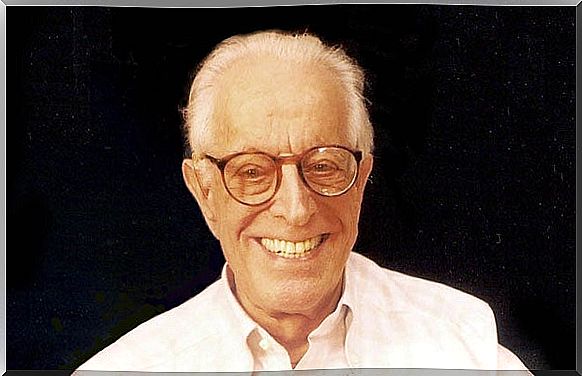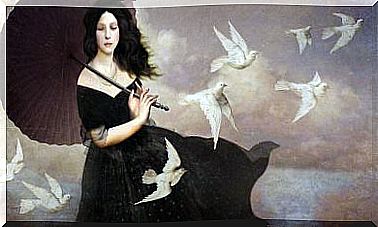7 Teachings Of Albert Ellis

The day I learned about the life and teachings of Albert Ellis, I simply fell in love. After a long time of not making sense of psychology or “believing” much in it, I learned that, by doing good therapy, such as TREC, psychology can be a powerful weapon to solve most of people’s psychological problems..
This is how Ellis explains it, when he himself applied his therapy to overcome his shyness and his fear of meeting and being intimate with women. And I have to confess that my head took a total turn when I started to self-apply it.
For this reason, and so that more people know the father of rational therapy, I would like to show, as a summary, 7 of Albert Ellis’s teachings, a true genius.
1. The ABC model, the basis of the teachings of Albert Ellis

From rational therapy it is postulated that it is not the situation or adversity that is directly causing your emotional discomfort, but that it is ourselves, with our beliefs and thoughts, who generate suffering for ourselves.
In this sense, the ABC model teaches the patient to put these concepts in order and to see the relationship between thoughts and emotions. The A would be the triggering situation, the adversity, or the problem. The B would be our thoughts and beliefs and the C would be the consequences of those thoughts, that is, how we are emotionally and how we behave.
2. Irrational beliefs
They are the B’s in the model described above. But when we put the surname “irrational” we mean that they are not based on logic or realistic, that is, they are thoughts that go through our head automatically without there being a reasoning process that questions or confronts them with the reality.
As a result of them, people suffer in an exaggerated way and do not act in the best way. Ellis raised 11 basic irrational beliefs, although there can be as many as there are people.
3. Unconditional acceptance of oneself

The teachings of Albert Ellis tell us that all human beings have the same value, regardless of what we possess or our external characteristics. The external is changeable and even perishable.
What we have today may not be there tomorrow and we will not have lost our value as a person, which is intrinsic to us from the moment we saw the light for the first time.
If we internalize this idea, which is reality, we will feel much freer and we will love ourselves unconditionally, without having to be handsome, or successful, or have a lot of money … because that does not determine our value.
4. Unconditional acceptance of others
Like the unconditional acceptance of oneself, to be happy and comfortable with others, we must practice the unconditional acceptance of others, which tries to accept the other no matter how they are: handsome or ugly, white or black, whether he is smart or not, whether he has money or not.
Anyone can bring us wonderful things, regardless of their external characteristics, which, as has already been said, are not important.
In addition, to free ourselves and not be distressed, it is very important to accept the people in our circle with their defects and virtues, and not try to change them or engage in endless discussions with them. We will not be able to change them easily. The key is to accept and value the virtues you have, because everyone has.
5. Tolerance for frustration
One of the keys to emotional health is practicing tolerance for frustration, that is, accepting that the world does not turn in the direction you want it to, nor that things will always turn out the way you would like.
This is a reality that many people refuse to accept and have a really bad time, and it is because of their irrational beliefs about the world. They think in terms of “should”: ” The world should be the way I want it ” and when this is not fulfilled, they become anxious or depressed.
6. The tremendousness

It arises when the person thinks that what is happening to him is something terrible, more than dramatic and that he cannot bear it. The negative of a situation is exaggerated.
It is a false idea that makes us even more anxious, because it has been shown that human beings have the ability to withstand almost any psychological blow, therefore, the rational belief would be: “ This thing that happens to me is very uncomfortable and unpleasant, but of course I can bear it . “
7. Rational-emotional images
One of the teachings of Albert Ellis, of the techniques that TREC uses to deactivate irrational beliefs, are visualizations. They help practice rational thinking habits and facilitate healthy emotions.
It is about the patient imagining a situation that he fears in the clearest possible way, feeling all the emotions that derive from it. Subsequently, the person is urged to exchange his exaggerated feelings for appropriate feelings.
For example, change panic for displeasure, depression, sadness … We can prescribe our own emotions if we make an effort to change our way of seeing things.









